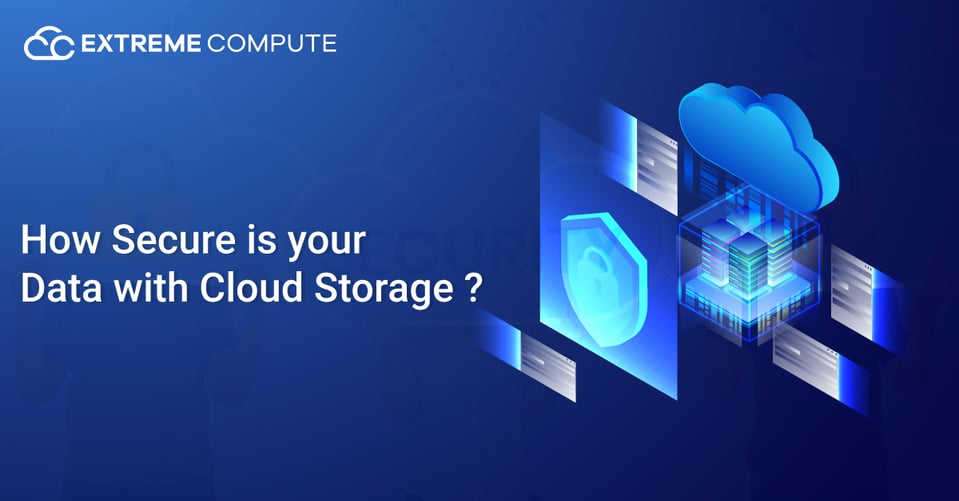
What is Cloud Storage and How does it Work?
Storing data in the cloud means data is transmitted and stored on remote storage facilities, where it is maintained, monitored, backed up, and made accessible to users via the internet. Typically, you would store your data on your computer or other local storage drives but this will have limited applications. Storing data on the cloud will open new opportunities for you but data security is becoming more of a concern as cloud storage becomes more popular. Many are worried about keeping their information private but if they were more confident in the protection of their data, far more people would store it online. So, what makes the cloud secure?
Data stored in the cloud is always encrypted, meaning that an attacker will have to crack the code before being able to read your data. Companies may use cloud storage to store their data in third-party data centers through a cloud provider. All files stored on protected cloud servers have a higher degree of security. The password is the most commonly used security credential. Other methods of data protection are used by Cloud Storage Security vendors.
Here are a few examples:
Firewalls that are more advanced:
In contrary to your local firewall on a simple computer, traveling data packets are inspected by all forms of firewalls in cloud. Simple firewalls just look at the data from the source and destination. Advanced ones check the content integrity of packets. The contents of the packets are then mapped to identified security threats by these programs.
Detection of Intruders:
Many users can use online encrypted storage at the same time. Effective Cloud Protection systems must be able to detect attempts to hack into the device. Cloud vendors may also deter intruders that get past the network's initial defenses thanks to several layers of detection.
Keeping track of events:
Security researchers use event logs to better understand risks. These logs keep track of network activity. This information is used by analysts to create a narrative about network events. This enables them to anticipate and avoid security breaches.
Firewalls on the inside:
Data stored in the cloud should not be accessible to all accounts. Internal firewalls that restrict safe cloud access improve security. This means that even if an account is compromised, it will not be able to obtain complete access.
Authentication:
Unauthorized users can't read the data because it's encrypted. Without a hidden key, an intruder who steals an encrypted file is denied entry. Anyone who does not have the key has no access to your information.
Physical Protection:
Cloud data centers provide a high level of security. Data centers that are certified have 24-hour surveillance, fingerprint locks, and armed guards. Every vendor uses a combination of security features to safeguard your information.
What makes it superior to a Laptop, Desktop or Smartphone?
There are many benefits of cloud computing, including:
- Without having to set up and maintain their own infrastructure, individuals and organizations can purchase as much computing power and storage as they require.
- Data can be combined, analyzed, and shared in the cloud, making it more useful.
- It is also less likely that data will be lost. If you lose your laptop, all your information is only a login away online.
- Data stored in the cloud is usually more reliable than data stored on a home computer with Internet access as there is a dedicated team working on securing your data.
So, storing data on the cloud is not only secure but opens many new possibilities with your data usage. Drop your queries below for a more detailed understanding of a secure cloud.
